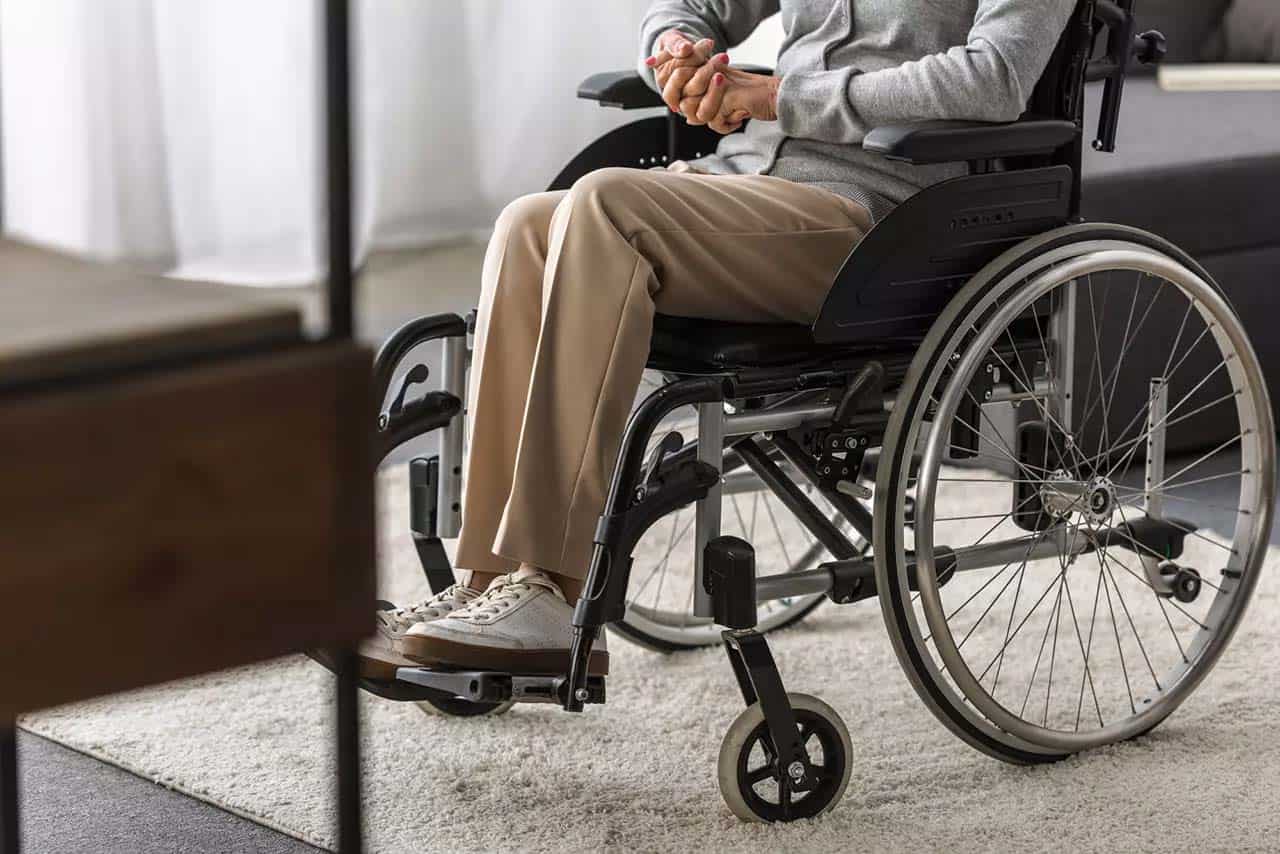Why disability support at home encourages autonomy
Why disability support at home encourages autonomy
Blog Article
The Value of Special Needs Solutions and the Effect of Home Care Providers
Disability solutions are necessary for improving the lives of individuals with specials needs. They use vital assistance that fosters independence and health. Home treatment suppliers play a crucial role in this framework by delivering tailored help tailored to unique demands. This assistance not only benefits people however also eases the pressure on household caregivers. Understanding these characteristics discloses a much deeper connection between care, area, and freedom. What lies in advance for these critical services and their influence?
Comprehending Disability Solutions
While many might not totally understand the intricacies of impairment services, they play a necessary role in improving the quality of life for individuals with disabilities. These services incorporate a wide variety of support group created to aid individuals in steering daily difficulties. From providing access to education and employment possibility to helping with medical care and recovery, impairment services intend to advertise freedom and inclusion.Key components include situation monitoring, advocacy, and assistive innovation, which aid individuals accomplish individual objectives. In addition, community-based programs frequently promote social links, reducing feelings of isolation. Different companies and federal government entities collaborate to ensure that people obtain customized assistance according to their unique needs. Comprehending these solutions is crucial, as they encourage people with impairments to lead satisfying lives, actively take part in their areas, and understand their potential. Ultimately, efficient disability services are foundational to advertising equity and access for all.

The Role of Home Treatment Providers
Home care carriers play an essential function in delivering customized assistance to people with handicaps, enabling them to preserve independence in their own homes - ndis providers near me. These experts supply a wide variety of solutions customized to fulfill the distinct requirements of each individual, guaranteeing that support is both relevant and effective. They aid with everyday activities such as meal prep work, individual health, and medicine management, which are essential for enhancing the lifestyle for those they serve.Moreover, home treatment suppliers function as an important link between people and their health care needs, facilitating interaction with physician and coordinating essential solutions. Their existence also alleviates the worry on household caregivers, advertising a much healthier dynamic within houses. By cultivating a risk-free and supportive atmosphere, home care carriers equip individuals with disabilities to involve with their communities, seek individual rate of interests, and ultimately lead meeting lives while staying in the comfort of their homes
Personalized Treatment and Support
Personalized treatment and support are crucial elements of effective home treatment services, as they accommodate the individual demands and preferences of everyone with a handicap. Home care providers examine the unique needs of each client, creating tailored strategies that prioritize their wellness, well-being, and convenience. This individualized method not just boosts the quality of care however additionally fosters a sense of dignity and respect.Caregivers are trained to adjust their approaches, ensuring that services line up with the customer's way of living, social background, and personal preferences. Routine interaction in between caretakers and customers aids to improve care plans, dealing with any type of transforming demands quickly. Furthermore, the concentrate on individualized assistance motivates the growth of trust fund and relationship, which can greatly improve the overall caregiving experience. Ultimately, personalized treatment and assistance encourage people with handicaps to obtain the help they require in a way that feels respectful and affirming.
Enhancing Independence for People
Enhancing freedom for people with specials needs is an essential goal within home care solutions. These solutions supply customized support that empowers clients to participate in day-to-day tasks autonomously (disability support). By offering assistance with individual treatment, wheelchair, and family tasks, home treatment carriers make it possible for people to preserve a sense of control over their lives. This freedom cultivates self-esteem and strength, important parts in the trip towards independence.Furthermore, home treatment services frequently consist of skill-building possibilities that educate individuals adaptive methods, enhancing their capacity to carry out tasks individually. This support not just meets prompt requirements but additionally promotes lasting self-sufficiency. Additionally, caretakers can assist in developing an atmosphere that accommodates private choices and abilities, guaranteeing that customers feel comfy and secure. In general, the concentrate on improving freedom through home treatment services is considerable in advertising dignity and lifestyle for people with impairments
Structure Community Inclusivity
While promoting specific independence is essential, developing area inclusivity for people with impairments is similarly vital. Inclusivity enhances social connections, permitting individuals to take part totally in community life. Community interaction campaigns, such as awareness campaigns and inclusive events, play a substantial duty in breaking down barriers and difficult misunderstandings concerning disabilities.Accessible public areas and transport alternatives are key elements that assist in engagement and assimilation. Cooperation amongst neighborhood organizations, companies, and advocacy groups can produce helpful networks that motivate inclusivity. Furthermore, training neighborhood participants on special needs awareness fosters empathy and promotes a culture of acceptance.Ultimately, an inclusive neighborhood not just benefits people with handicaps however enhances the entire social material by embracing diversity. By understanding and resolving the one-of-a-kind demands of people with specials needs, neighborhoods can cultivate a setting where every person has the chance to flourish and contribute meaningfully.
The Influence on Family Members and Caretakers
Several households and caregivers of individuals with handicaps experience an extensive impact on their day-to-day lives and psychological well-being. The responsibilities related to caregiving can cause considerable physical and psychological strain, often causing caregiver fatigue. This can lessen their capability to provide efficient support and develop a nurturing setting. Furthermore, the psychological toll can cause feelings of seclusion and anxiety, impacting family characteristics and relationships.Access to disability solutions and home care carriers can minimize some of these problems by offering needed assistance and resources. These solutions enable households to share caregiving duties, enabling caretakers to concentrate and take breaks by themselves health and wellness. Enhanced support networks cultivate a sense of neighborhood, which can boost emotional durability. Inevitably, the existence of thorough special needs solutions notably influences families, promoting much better wellness outcomes and improving the quality of life for both caretakers and people with disabilities.
Future Patterns in Handicap Services and Home Care
As the landscape of handicap solutions and home care progresses, technology integration is coming to be increasingly famous. This change allows for even more customized support versions that satisfy private requirements and preferences. By harnessing ingenious devices, companies can boost treatment top quality and boost end results for those they offer.
Modern Technology Assimilation in Treatment
The combination of innovation in special needs solutions and home care is transforming the way care is delivered and experienced. Advanced devices such as telehealth systems, wearable gadgets, and clever home systems boost access and interaction between customers and caretakers. These innovations assist in real-time tracking of health metrics, allowing for prompt treatments and customized care adjustments. In addition, mobile applications equip individuals with impairments to handle their very own care plans and accessibility sources much more efficiently. Automation and fabricated knowledge are improving administrative jobs, maximizing caregivers to concentrate on supplying quality assistance. As innovation remains to advance, its combination within these sectors assures to enhance outcomes, boost independence for customers, and enhance source allowance for service providers.
Personalized Assistance Models
While standard treatment versions usually take on a one-size-fits-all strategy, the future of handicap solutions and home care is increasingly leaning in the direction of customized support versions that accommodate the special needs of each individual. These versions highlight cooperation between care providers, clients, and their family members, guaranteeing that solutions straighten with personal preferences and details challenges. By leveraging analyses and feedback, companies can customize interventions, whether they involve daily living help, healing tasks, or emotional assistance. This customized approach not only improves the high quality of treatment yet also promotes higher freedom and well-being among individuals with specials needs. As understanding of these advantages grows, personalized support models are poised to end up being the requirement more information in special needs solutions and home treatment, changing the landscape of treatment distribution.
Frequently Asked Questions
What Certifications Do Home Care Providers Usually Need?
Home treatment carriers normally need a high institution diploma or equivalent, conclusion of a state-approved training program, accreditation in CPR and first help, and commonly a background check to guarantee safety and security and reliability for clients.

Exactly How Are Special Needs Solutions Funded and Accessed?
Impairment services are generally funded through federal government programs, private insurance policy, and gives. Accessing these solutions usually entails analyses, eligibility criteria, and applications, which vary by location and particular requirements of individuals seeking assistance.
Can Home Treatment Providers Be Custom-made for Certain Disabilities?
Home care services can indeed be customized to fulfill the special needs of individuals with certain specials needs. This modification permits customized support, boosting the quality of treatment and enhancing the overall wellness of customers.
What Prevail Challenges Faced by Home Treatment Providers?
Common challenges dealt with by home care service providers consist of staffing lacks, poor training, interaction barriers with clients and households, differing degrees of client needs, taking care of insurance coverage intricacies, and making sure regular quality of treatment across various atmospheres.
How Can Families Locate Trustworthy Impairment Services in Their Location?
Families can situate reputable special needs solutions by researching regional agencies, seeking advice from on-line directories, seeking recommendations from health care specialists, and connecting with support teams. Thorough assessments and meetings with company help ensure top quality and compatibility with needs. Customized care and assistance are important elements of effective home care solutions, as they cater to a knockout post the specific needs and preferences of each person with a handicap. By supplying help with personal treatment, movement, and family tasks, home care service providers allow people to maintain a feeling of control over their lives. The combination of modern technology in impairment solutions and home treatment is transforming the way care is supplied and experienced. While conventional treatment designs usually embrace a one-size-fits-all technique, the future of disability services and home care is increasingly leaning in the direction of customized support models that provide to useful content the special demands of each individual. Home care solutions can undoubtedly be personalized to satisfy the distinct needs of individuals with specific handicaps.
Report this page